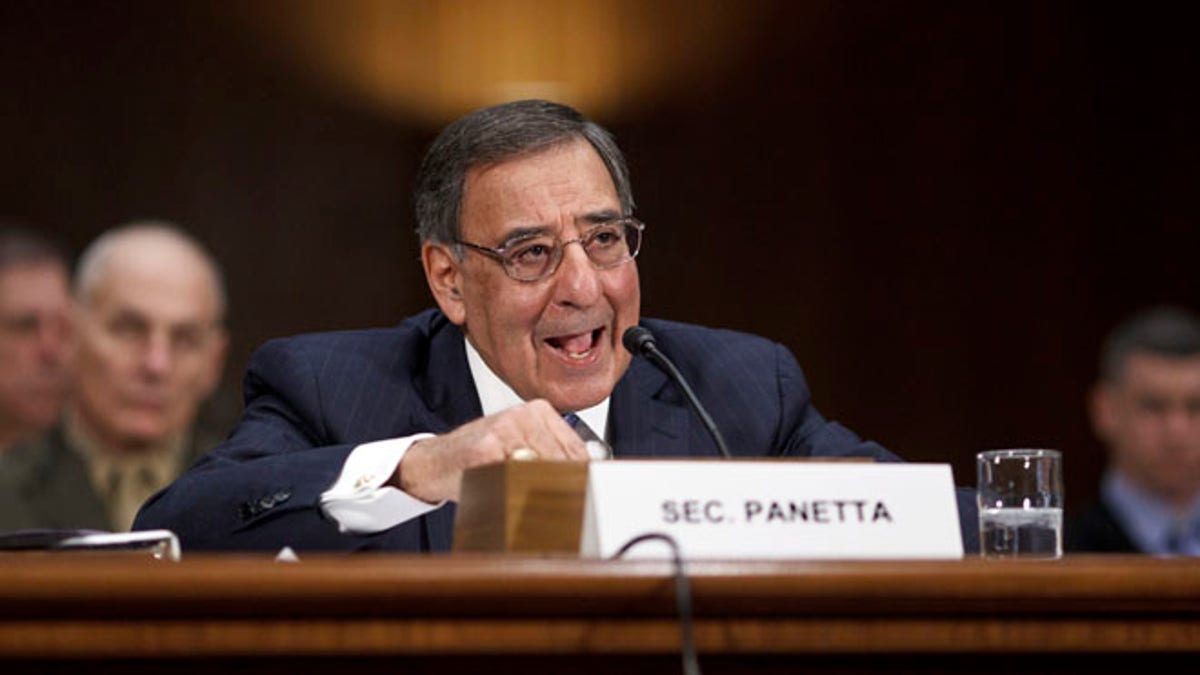
FILE: March 7, 2012: Defense Secretary Leon Panetta testifies on Capitol Hill in Washington. (AP)
The Pentagon confirmed Tuesday that it is carving out a brand new spy agency expected to include several hundred officers focused on intelligence gathering around the world.
At a time of budget cutbacks, particularly in the military, it's unclear how the Defense Department has been able to move around the money to afford a new agency. The Pentagon wouldn't get into specifics saying only that the so-called "Defense Clandestine Service" wouldn't involve "significant new resource requirements."
The service would be an offshoot of the Defense Intelligence Agency.
Officers drawn from that agency would be sent to beef up U.S. intelligence teams in areas that are now receiving more attention. They include Africa, where Al Qaeda is increasingly active, as well as parts of Asia, where the North Korean missile threat and Chinese military expansion are causing increasing U.S. concern.
Pentagon spokesman Capt. John Kirby called the new agency "complimentary, not in competition with" existing agencies -- such as the CIA.
One unnamed official earlier told The Washington Post that the new service "does not involve new manpower" or "new authorities."
Rather, it is shifting the emphasis of Pentagon intelligence gathering away from war zones.
Defense Department case officers already secretly gather intelligence across the globe on terrorism, weapons of mass destruction and other subjects, mostly working out of CIA stations in embassies and operating undercover like their CIA counterparts.
But an internal study by the Director of National Intelligence last year found the agency still focused more on its traditional mission of providing the military with intelligence in war zones and less on what's called "national" intelligence -- gathering and disseminating information on global issues and sharing that intelligence with other national security agencies, one official said.
The study also found that the Pentagon did not always reward clandestine service overseas with promotions, so its most experienced case officers often left for the CIA or switched to other career paths within the Pentagon.
The new service is intended to curb personnel losses, making clandestine work part of the Pentagon's professional career track and rewarding those who prove successful at operating covertly overseas with further tours and promotions, like their CIA colleagues.
The case officers in the field -- some military and some civilian -- will answer directly to the top intelligence representative in their post, usually the CIA's chief of station, in addition to serving their agency back home.
The changes were worked out by the top Pentagon intelligence official, Undersecretary of Defense for Intelligence Michael Vickers, and his CIA counterpart who heads the National Clandestine Service, and communicated to Congress before Defense Secretary Leon Panetta approved the new program Friday.
Panetta is the former CIA director.
The Associated Press contributed to this report.




